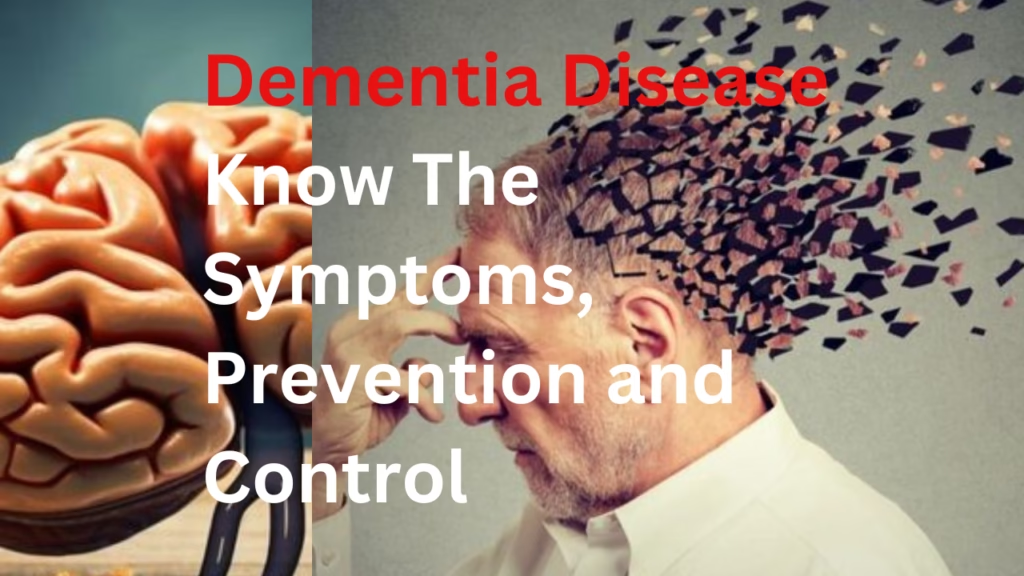Dementia a serious mental condition. It changes lives in big ways. It deeply affects individuals mental health and their families.The condition occurs when brain cells are damaged, affecting their ability to communicate with each other. This damage can lead to memory loss, impaired reasoning, and difficulties with language and problem-solving.
What is Dementia?
Dementia is a decline in cognitive function that affects daily life. It’s not a single disease but a group of symptoms. Alzheimer’s disease is the most common type. Other types include vascular dementia and Lewy body dementia.It leads Brain cells to damaged , leading to memory loss and other problems. This damage affects how brain cells communicate with each other.
Symptoms of Dementia
Symptoms vary by cause and individual. Common signs include:
- Memory Loss: Forgetting recent events or asking the same questions repeatedly is a sign.
- Difficulty with Language: Struggling to find words or following conversations is common.
- Impaired Judgment and Reasoning: Simple decisions can become overwhelming.
- Changes in Mood and Personality: Depression, anxiety, and irritability are common.
- Disorientation: Confusion about time, place, or familiar faces is troubling.
- Difficulty with Everyday Tasks: Cooking, driving, or dressing can become challenging.
If you notice these symptoms, seek medical advice. Early diagnosis helps manage symptoms better.
How Can We Prevent or Control Dementia?
While preventing dementia is not guaranteed, we can reduce risk and manage symptoms. Here are some practical and research-backed steps:
- Stay Physically Active: Regular exercise boosts blood flow to the brain. It can also lower the risk of heart disease and diabetes. Try walking, swimming, or dancing to help.

- Adopt a Healthy Diet plan: Eating a balanced diet is key. Include fruits, veggies, whole grains, and healthy fats. Avoid too much sugar and processed foods.
- Stay Mentally Engaged: Keep your brain active with puzzles, reading, and learning new things. Even small activities like crosswords can help.

- Socialize yourself : Staying connected with loved ones is important. It boosts mental health and reduces cognitive decline risks. Loneliness can worsen symptoms.
- Manage Any Chronic Conditions: High blood pressure, diabetes, and high cholesterol raise dementia risks. Control these with medication, diet, and lifestyle changes.
- Prioritize Your Sleep: Sleep helps our brains process memories. Lack of sleep or disorders like sleep apnea harm brain health. Aim for 7-8 hours each night.
- Avoid Harmful Habits: Smoking and too much alcohol damage brain cells and increase dementia risk.Quitting smoking and drinking in moderation are beneficial.

- Stay Mindful of Mental Health: Manage stress, anxiety, and depression with therapy or relaxation techniques. It helps keep emotional and cognitive health in check.
Living with Dementia
If someone is diagnosed with dementia, be compassionate and understanding. Dementia can be tough for both the person and caregivers. Patience is crucial.
Engage with the person in ways that respect their abilities and preferences. Activities like looking at old photos, listening to music, or going for short walks can bring joy and strengthen bonds.
It’s also vital for caregivers to seek support. Caring for someone with dementia can be draining. Joining support groups, getting professional help, or reaching out to friends and family can help.
My Final Thoughts
Although this diesese is tough, but it doesn’t define someone’s life. Early action, lifestyle changes, and support from loved ones can make a big difference. By staying informed and proactive, we can create a supportive environment for those with dementia. Remember, small steps towards better brain health every day can make a big difference.



